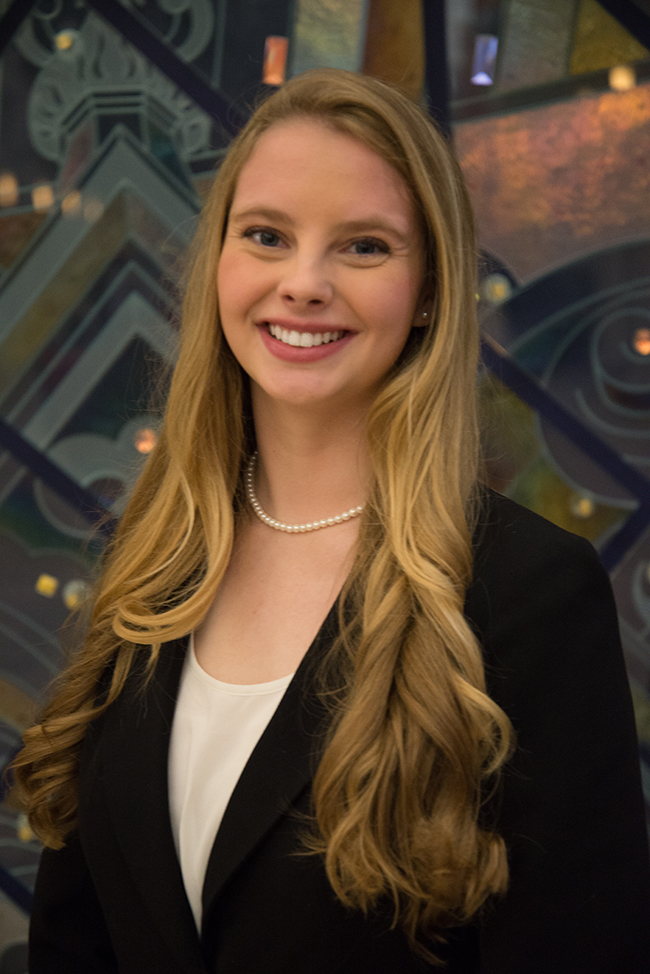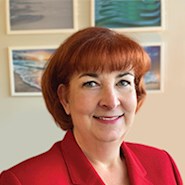Edited by Laurie A. Shuster
Ariel Dornisch, EIT, A.M.ASCE, graduated from Mercer University in May with a bachelor’s and a master’s degree in environmental engineering, thanks to the school’s 4+1 program, which enables students to achieve a master’s degree with just one additional year of schooling beyond the four years required for a bachelor’s degree.
After school, which included two internships and time working in the Dominican Republic, she accepted her first full-time position as a project engineer in Timmons Group’s office in Raleigh, North Carolina, in June, working in the water/wastewater group.

Dornisch, who is also a member of ASCE’s Environment and Water Resources Institute, approached her job search as the start of a two-way relationship, recognizing that the people you work with are just as important as the job you do. She thoroughly researched her company and met as many of her future teammates as possible, looking for the perfect fit and plenty of women engineers to learn from. Here’s how she did it:
Civil Engineering: How did you first become interested in environmental engineering?
Dornisch: I had an advanced placement environment class in high school, and that’s when I came across environmental engineering, which combines the things I was interested in from that class with the engineering side of my brain, which likes to break things down and figure out how they work. To me, it’s a beautiful combination.
How did you choose Mercer University?
Choosing a college was mainly about being in the South — I don’t handle snow well — and about having a really good engineering school. I looked at bigger schools, but Mercer was a better fit for me because it was smaller. I didn’t have any classes that had more than 80 students, so I got a lot of one-on-one time with the instructors. I knew I would want to actually talk to my professors.
What were your favorite courses at the university?
I really liked the courses that dealt with people as well as engineering. I love the calculations and the math, but I prefer when we apply those to real-world problems affecting people. I had a public health class that I liked, for example. I also participated in a program called Mercer on Mission. That consisted of one class learning the background of what we would be doing in the Dominican Republic and learning the basics of the culture and some Spanish so we could communicate.
The other class involved spending about 10 days in the Dominican Republic. We hiked to water sources to collect water samples, tested the water for E. Coli and other bacteria, helped build a water tank, and put in distribution pipes. The community had a water source, but it was a long walk up and down a mountain to get to it, and that could be dangerous at night. So putting in infrastructure that made it so they wouldn’t have to walk as far was really important.
We also worked on air quality issues. A lot of people there — and elsewhere in the world — still cook using wood or dried feces, and they do it indoors. That can be absolutely devastating to the lungs and the overall health of people inside the home. There were two parts to that part of the class. First, we interviewed the people about how often they cook, whether they leave the windows open, etc., and then we created devices that detected particulate matter in the air. That was to give us some solid numbers on what exactly was going on in a given home.
What experience did you get from internships, and how did that help you in your career search?
My first internship was with Geotechnical & Environmental Consultants Inc., which is now owned by Terracon. That was much more hands-on and in the field. I enjoyed it, but it wasn’t what I wanted to be doing for my career. My next one was with ESG Engineering, a small consulting firm in Georgia. There were maybe six or seven people, and because we were small, I got a good sense of all the different aspects of consulting. We fixed roads, helped a city with its geographic information system, and accomplished other tasks. I realized I like consulting because there is something new every day.
Once you graduated, how did you conduct your job search?
I started my job search by focusing on cities in the South where I thought I might want to live. I set up special search parameters in LinkedIn and Glassdoor, and then checked them once a week to see which ones I was qualified for and interested in.
Environmental engineering is a niche, and with my experience, I wanted to make sure there was a good fit between what I knew how to do and what I wanted to do. I applied to the ones that fit all my criteria and went from there.
How did you decide on Timmons Group?
Everyone always told me that who you work with is just as important as what you do. So I knew I wanted to find a team I felt comfortable with — that had a good working environment and sense of community. I was able to talk with the person who would become my supervisor as well as other team members and visit the office. I didn’t want to accept a job at an office I hadn’t visited.
I was able to meet the full team and realized I would fit in really well here. That was ultimately why I chose to work here; I like the work, but just as importantly I like the people. I always say it’s like a bride saying ‘yes to the dress’ — when you know, you know!
How did you prepare for the interview process?
I looked up the company and found what I could on those people whom I knew were going to be in the interview as well as the name of the CEO. I had heard from peers in college that an interviewer might ask you the CEO’s name and they are impressed if you know it. They want to know you are actually interested in the firm.
I also developed a set of questions to ask the interviewer. I came up with the questions by having the mindset that while they are interviewing me, I am interviewing them. So what do I really want to know about this company? Asking those questions helped me get to know my supervisor and the team. And going in with that mindset gave me confidence.
I also asked about the demographics of who I would be working with. I wanted to know if there were people around my age and also people who were older, and I wanted to know how many women engineers they had on staff. As a young professional, I want women engineers to learn from and look up to because it is such a male-dominated profession. Right now I am in a group of six, and three of us are women. So that’s been really cool. And there are enough people around me at the same stage of life that we can talk and relate to one another.
How do the job description and culture fit with what you expected?
It’s pretty good; I got lucky joining when I did because people were back in the office and masks were going away, so I could see everyone’s faces and really communicate well with them.
Our little group went camping together recently as a bonding activity. That was really fun and a good way to get to know people and build trust.
What do you do at your job now, and what do you like best about it?
I am in the water group in Raleigh. A lot of my job is looking at new developments and determining what size water or wastewater line will meet its demands. And we work with the city to determine if we put this new development there, are we going to need to upgrade anything in the city? That may involve digging up a sewer pipe and putting in a bigger one or adding a pump station. We draw the plans for all of that.
I really enjoy it because it’s not just computer-aided design work; I’m also talking with the cities to figure out what infrastructure is already there and if it will need to be improved.
What role would you see yourself working toward next?
This first year I am looking forward to getting on different types of projects. Right now I am doing pipelines for developments, but I haven’t worked on any pump stations yet. I am excited to learn that.
Past that, I am looking at getting my P.E. license. I will probably take the test in two or three years. North Carolina is one place where you can take the test regardless of your years of experience.
Once I get the license, that will mean a title change and more responsibility. Further into the future I am interested in management. I’m going to try to get myself in the right lane to do that because I enjoy both the engineering and working with people.
Do you have any advice for graduating students who are looking for their first jobs now?
Don’t stop looking, because it can be very discouraging sending out as many applications as it takes. But eventually a call will come back.
And look for people you want to work with, not just the job description.



